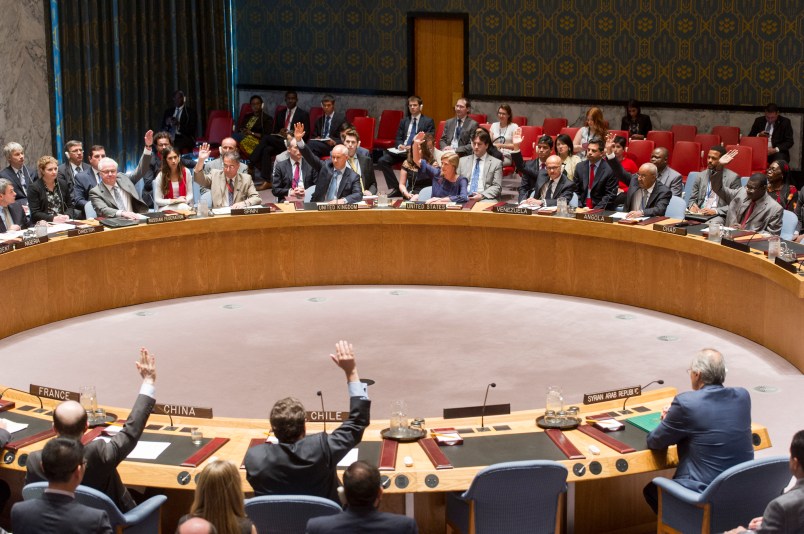The premise of most liberal internationalist interventionism is not just preserving norms about human rights and preventing mass killing but the belief that totalizing violence is inherently unstable and spreads. This was the idea in the Balkans in the 1990s. By and large, the Clinton administration’s efforts, long delayed, often incomplete, largely vindicated this idea. The Balkans are no paradise but there are no mass killings there today. And there’s a slow progress of integration into European norms and the European state system.
The case in Syria tells the lesson from the other side. I think we’ll be trying to understand for decades precisely what happened in this war, why, its origins and the missed chances to move the conflict in another direction. But the big truth is that the conflict did not remain in Syria. It bled into a border crossing multi-state war in Iraq. Far more significant, Syria created a massive and on-going refugee crisis that not only destabilized immediate neighbors in Jordan and Turkey but also drove a wave of refugees into Europe. Combined with the 2008 economic crisis, this refugee influx is a main driver of Europe’s nationalist crisis which is still on-going and has in key respects even washed over on to American soil in the election of Donald Trump.
In other words, in many ways, the fallout of the Syrian civil war vindicated interventionist arguments, at least on the surface. President Obama’s key decisions thus stand vulnerable not only to contemporary growsing but future historical judgments.
For most, the obvious analogue is to Iraq, where supposed humanitarian and internationalist aims ended in catastrophe. The key word there is “supposed”. This was more militarist and dominationist than internationalist. And much of the problems came from that fact. But while fatigue with the Iraq debacle played heavily into resistance to Syrian involvement, Iraq was never really the right comparison. Very, very few people – really close to no one – proposed an Iraq style invasion of Syria. Proposals were more on the model of 90s Balkan involvement or – the real analog – Libya.
This is really where the conversation needs to start. The European states had confronted a very similar situation in Libya at roughly the same time, only a little bit earlier. The US and European powers intervened in Libya to prevent a state massacre of civilians and cut short something like we’ve subsequently seen in Syria.
Whatever the substance, in the US political conversation, the Libya intervention was generally seen as a spectacular failure. Whatever the accuracy of that perception it put profound political constraints on what could be done in Syria. More substantively, the Libya experience also showed that the kind of limited, aerial involvement we’re talking about could have quick effects (the fall of the Gaddafi government) but not fundamentally change the situation – pervasive instability, endemic violence, huge refugee flows, the growth of extremist groups etc.
I have no grand suggestion here. The Syrian Civil War has had massive negative repercussions not only across the Middle East, which isn’t surprising, but across Europe as well. (The carnage within Syria is another matter entirely.) But the idea that we had good options to arrest or prevent those negative repercussions remains highly questionable.






